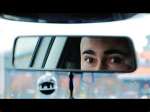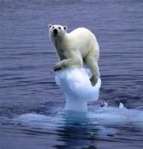Afternoons, the ‘F’ train became the ‘fight train’ as I traveled to my NYU teaching gig. High-schoolers’ pent-up energy ricocheted off subway walls, without regard to bystanders. Until the day this innocent was attacked by a flying jelly bean. My gentle admonition to take care was answered with a threat to ‘beat me up’ – no great challenge for her and a lesson of caution for me. A lesson to contain my ‘suggestions’.
An email discussion with my niece Emily found us chewing on the meaty topic of the Donner Party (sorry….). Revulsion aside, Em wisely admitted she couldn’t really say what she would do in that situation.
How could she? How could any of us?
Things always look easier when you are on the outside looking in. Traveling to the past and critiquing the actions of others is easy. It’s easy to slap moral judgements and out-of-context beliefs on what was done in a time and place viewed far from the comfort of a book or LCD screen. But when the going gets tough and push turns to life and death, I always stop and wonder, “What would I do?’ (WWID)
In all situations, I hope for the character and strength of Miep Gies, the family friend who helped hide and feed Anne Frank and her family regardless of danger to her and her husband.
Moral strength leads to moral pondering and to Nathan Englander’s ‘What we talk about when we talk about Anne Frank’ (New Yorker 12/12/2011 (http://www.newyorker.com/fiction/features/2011/12/12/111212fi_fiction_englander).
 My teaser: An obsession-turned-‘game’ finds its way into the reunion conversation of two slightly drunk, slightly high, middle-aged couples, connected through the wives Yeshiva school days. An afternoon of tension and discomfort laced with humor and startling revelations leads to the taunting pose between spouses: ‘Would you hide me?’
My teaser: An obsession-turned-‘game’ finds its way into the reunion conversation of two slightly drunk, slightly high, middle-aged couples, connected through the wives Yeshiva school days. An afternoon of tension and discomfort laced with humor and startling revelations leads to the taunting pose between spouses: ‘Would you hide me?’
See, you need to read this book!
Provocatively, ‘would you hide me?’ haunts my mind’s crevices and shadows conversations. Staring matches in my bathroom mirror dares: What would I do?
Can I trust my eyes with the answer? Can others?
Surely we all say we will protect others. Of course. How can we possibly say no? But how do we really know? Is the strength to hide and protect fused into a person’s core identity?
A recent review of the Holocaust movie: “In Darkness” implied enough already with the Holocaust. This topic’s been exhausted. Read Mr. Englander’s story.
I wonder if we haven’t had enough. Surely there is something more to our interest in Hitler’s horrors against Jews, Gypsies, gays, and others. A gnawing question knocking at our sensibilities as we watch and read. A question turned inward forcing us to (uncomfortably) explore moral strength and identity: What would I do?
Yes, more stories of the Holocaust and other genocides are needed. More stories to prompt consideration of ‘WWID?’
‘Never Again’! A Holocaust slogan reminds. I’d like to say that there will ‘never again’ be a holocaust, and a threat to wipe Jews off the planet. I’d like to say there will be no more genocides.
http://www.youtube.com/watch?v=xN-3yAvEHtM
I fear polar bears will become extinct before acts of genocide. And people like polar bears.
Under the world’s watchful eyes genocides have threatened to wipe out nations around the globe. Anti-Semitism is alive and far too well.
Every holocaust starts small. In ‘small’, hate-filled people. Hate-filled become haters. Hate fills people slowly, as recipients of actions that expose rather than hide. Actions that attack rather than protect.
‘Would you hide me?’ It’s small actions that protect and hide others. From sadness, fear, hopelessness. Actions we can all take. These days it’s way too easy to poke fun at others using social media. Too easy to exclude others who are sitting around a table if they aren’t part of the group. Too easy to focus on our ‘stuff’ and not listen to a friend’s needs. Too easy to criticize rather than compliment. Or worse, purposely ignore an opportunity to compliment, to support another.
I think I can do the hard thing. Can’t we all?
WWID? I can do the small stuff. Take responsibility. I can make decisions and take actions to demonstrate I am a person who protects and hides others. I hope. Even if I haven’t always done so, I can do better.
I can respect a confidence more than sharing a story on Facebook, tweet, or at a party.
I can resist the urge to say or post something about another that might in reality be insulting, even if it’s done with humor.
I can value a person’s sense of self rather than my need to be part of a ‘group joke’ – at someone else’s expense, even if that person isn’t there.
I can stop teases, taunts, and mean-spirited gossip – even if I can’t stop jelly beans shooting through subway cars.
Not yet.
It’s the decision to make little ‘random acts of kindness’ that turn us into protectors. Right?
Aspects of identity need to be taught. As a coach, I help others develop secure identities, to be safely in the driver’s seat to turn right.
But I know it’s scary to be the face of reason. The one saying stop when others look for Facebook likes.
How did we get here? How have we not traveled further?
Take a leap. It’s scary, but go ahead. Take action. Ask yourself: ‘What would I do?’
